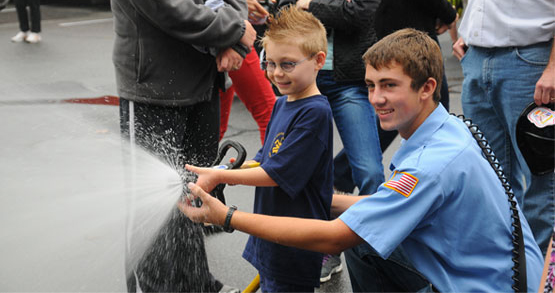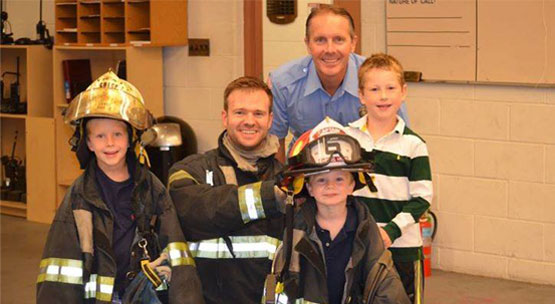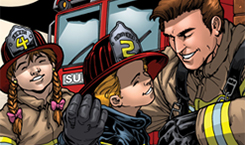We’re looking for a few good neighbors
Become a local fire or emergency medical service volunteer and join our extraordinary community of heroes.
JUNIOR FIREFIGHTER AND EMT PROGRAMS
Just because active firefighters and emergency service personnel are required by law to be at least 18 years old doesn’t mean you can’t begin contributing to your community at an earlier age. Many fire and EMS agencies in Suffolk County have active Junior programs that provide interested younger people the opportunity to begin their training and develop the skills required to pass the Firefighter I and Firefighter II, or EMT certification requirements when they become of age. Juniors also learn about agency organization, operations, and command, while developing teamwork and leadership skills that will benefit them in whatever career they follow later in life.
As a Junior Firefighter, you will not be allowed to participate directly in fighting actual fires. You may, however, be able to help behind the fire lines in providing food and drink to firefighters, setting out and cleaning tools, refilling air packs, and other equally vital services. Your training will cover every aspect of fire service participation. During your training you can expect to develop many practical and valuable skills, such as basic first aid; the donning of personal protective equipment and the use of self-contained breathing apparatus; how to use and maintain the tools needed to fight fires and conduct rescues; and the techniques for executing search and rescue, forcible entry, ventilation, emergency evacuation, and automobile extractions.
The National Volunteer Fire Council (NVFC) has a special website, juniors.nvfc.org/junior, where you’ll be able to download a 28-page booklet, Core Competencies for the Junior Fire Service, which offers a wealth of detailed information on what you can expect.
Junior EMTs receive training in a broad range of first aid and rescue procedures. Depending on the particular agency’s program and requirements, once trained you may be allowed to assist with rescues, assess patients and provide basic first aid, and ride in ambulances to observe rescue operations. Other activities can include participating in training drills and community outreach programs, and doing community service projects to share what is being learned in the program.
Joining a Junior program is also a great way to meet others your age who share your values and beliefs regarding community service. Many juniors develop friendships that last throughout their lives.
Contact your local fire or EMS agency to learn if a junior program exists in your district.




